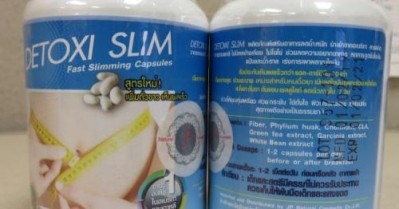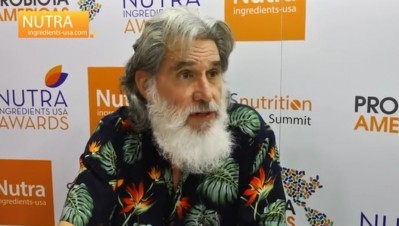Comment period opens on BAPP draft of SOP for destruction of adulterated ingredients

BAPP, which is a joint effort of the American Botanical Council, the American Herbal Pharmacopoeia and the National Center for Natural Products Research at the University of Mississippi, has had the so-called “Best Practices Standard Operating Procedure (SOP) for the Disposal/Destruction of Irreparably Defective Articles” under development for more than a year.
Industry had been turning blind eye to program
In internal discussions in the industry, ABC founder and executive director Mark Blumenthal said it had become clear that adulterated or otherwise defective material, after having been first rejected by one customer, was being shopped around the fringes of the industry until it found a buyer. The industry’s self regulation efforts could be seen to lack teeth if stakeholders were turning a blind eye to that activity, he said.
“This originally was just going to be an article in HerbalGram (ABC’s periodical publication),” Blumenthal said.
“Through the BAPP we have continually confirmed that there is adulteration out there,” he said. “We are trying to get the industry to be more assertive in self regulation.”
Contractual framework
The basic idea of the SOP is to provide a contractual framework under which material that is found to be adulterated with either stray botanical constituents, undeclared pharmaceutical ingredients or other things will be destroyed rather than returned to the supplier. Both customer and supplier would sign on to this, and the costs would be borne by the supplier.
The SOP, which was developed with the assistance of Health Business Strategies, LLC, an industry consulting firm, includes a decision tree which can be used to determine what kinds of materials would rise to this level. A key point for out-of-spec materials is whether the problem can legally be remediated.
Legitimate out-of-spec scenarios
A material might be out of spec for reasons that don’t require destruction, Blumenthal said. An example might be a powdered material that is not ground to the correct particle size. In this case a subsequent milling step could fix the issue.
And there are instances where rejected materials could be returned to the supplier and subsequently resold without triggering the destruction clause, he added. An example of this could be an extract that might not be quite the right color, which might otherwise force a manufacturer to use a color additive to have consistency with prior lots of a given SKU.
But the true problem materials, such as blends of botanicals that include adulterants such as lower cost plant materials meant to plump out a shipment or chemical constituents added to fool HPLC tests, cannot be fixed. The same is true of blends that might include undeclared APIs such as sildenafil or sibutramine. Once that material is blended in a hopper, there’s no going back.
‘Fifth scenario,’ where destruction is called for
This falls under the SOP’s ‘fifth scenario,’ under which both parties agree to have the problem material tested by a third party and destroyed if the problems with the material are confirmed. Blumenthal said a lot of work was done to try to ensure that both parties are protected under this scenario and only truly problematical material gets destroyed. The hope is that with these strictures in place, the purveyors of these kinds of ingredients won’t come knocking in the first place.
Prior to yesterday’s release to a broader constituency, the SOP was reviewed by members of BAPP’s Ad Hoc Legal Advisory Committee, members of ABC’s Advisory Board, and other regulatory and analytical experts. A version of the draft was shared with various herb and dietary supplement industry leaders at the annual NBJ Summit held in July 2018. The draft SOP has been sent to ABC’s Sponsor and Small Business Members and BAPP Underwriters and Endorsers in the United States.
Gathering comments from cross section of industry
Now qualified industry stakeholders, which could include those who are not members of ABC, have a chance to weigh in on the SOP, Blumenthal said. It’s part of ABC’s long standing practice of extensive peer review of publications.
“We want to get as much comment on the SOP as we can,” he said. “We are being very transparent about this. We are going to publish all of the comments when we publish the final draft alter this year.”
Blumenthal said part of the process will be to keep FDA informed on the progress of the initiative. He said he intends this week to send the draft SOP to Steven Tave, head of FDA’s Office of Dietary Supplement Programs.
A fringe element, but one that cannot be ignored
Blumenthal emphasized that the ‘fifth scenario’ of the SOP is unlikely to apply to many transactions within the industry. But trying to prevent that fringe activity from occurring will be a step forward, he said.
“Many herb and dietary supplement manufacturers both in the United States and internationally have developed long-term relationships with their suppliers, where the companies have fully qualified these suppliers and the ingredients obtained from them. Such suppliers consistently analyze their ingredients before shipping them to customers for further quality control testing and manufacturing into herbal preparations for consumer use. Though the risks of potential adulteration are real, there is an extremely low potential for such well-qualified ingredients’ having any defects that would make them ‘irreparably defective’ according to appropriate regulations and the BAPP SOP,” Blumenthal said.
“Economic adulteration and low-level contamination represent very real supply chain concerns with all commodities, including botanical and other dietary ingredients regulated by FDA. Ingredient buyers are the ‘Guardians at the Gate,’ who are responsible for approving the use of ingredients for manufacturing. While manufacturers are prohibited under cGMPs [current Good Manufacturing Practices] from using ingredients that don’t meet their specifications, the cGMP regulations are generally silent on what to do with ingredients that are rejected, particularly if they cannot be lawfully reconditioned,” said Michael D. Levin, founder of Health Business Strategies.
Interested parties can download a copy of the SOP after completing a survey HERE.















